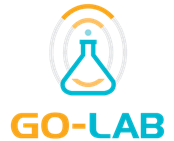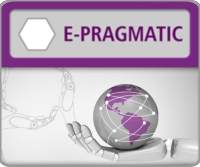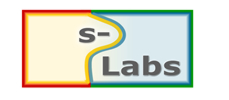Projects on which WebLab-Deusto is involved:

Description
Next-Lab (2017-2020) is the follow-up project of the successful Go-Lab project (2012-2016) Next-Lab will increase the number of involved teachers and students, expand its target group to include younger students in primary education, and make efforts to align the project with teacher training programmes, thus, targeting also pre-service teachers. This way – via the teachers of the future – Next-Lab consortium will be able to get more young people inspired about science and technology.

Description
PILAR project proposes a solution that aims to interconnect all VISIR systems, with each other in order to create a grid laboratory shared and accessed by all the participants, expanding and empowering existing systems to a new level of service and capacity. This will allow expanding the application range: each university may install certain circuits on its own VISIR and utilize another type of circuits installed on a VISIR of other universities and viceversa. The project will then provide: 1. A web-based federation of VISIR laboratories and includes a free-access repository for sharing learning resources. Members of this cloud will be the VISIR community partners. 2. The VISIR federation will offer a number of remote labs in the form of services to teachers and students at schools and universities.3. A teacher Printmay reserve any workbench within the clPrintoud for a particular time period. 4. It would also be possible for organization without VISIR to participate. However, they should be granted access to a particular workbench through prior negotiation with the providers.

Description
The Go-Lab Project (Global Online Science Labs for Inquiry Learning at School) is a European collaborative project co-funded by the European Commission (Seventh Framework Programme) and uniting 19 organisations from twelve countries. Go-Lab concentrates on providing access to online laboratories in order to enrich classroom experience in schools as well as learning activities out-of-class. The overall aim of the Go-Lab Project is to provide students an opportunity to gain hands-on experience in science by conducting experiments using modern laboratory equipment by themselves, deepen their knowledge in fundamental sciences, and to motivate them for making scientific carrier in the future.

Description
This project targets the broad area of Electrical and Electronics Engineering, and, within it, the subject of circuit theory and practice. It aims to define, develop and evaluate a set of educational modules comprising hands-on, virtual, and remote experiments, the later supported by a remote lab named Virtual Instruments Systems In Reality (VISIR). The nature of each experiment (hands-on, virtual, real-remote) has an impact on the students’ perception of circuits’ behaviour, being therefore mandatory to understand how these different learning objects can be arranged together in order to scaffold their understanding and increase their laboratory-based skills. This is the concern of the underpinning teaching and learning methodology, favouring in particular the students’ autonomy for discovering how circuits work, through an enquiry-based approach. VISIR+ brings together the power of the best remote lab for experiments with electrical and electronics circuits and the long history of collaboration among the consortium partners from Argentina, Austria, Brazil, Portugal Spain, and Sweden.

Description
The wider objective of this project is to increase attractiveness of engineering education through innovative teaching methods as well as through the strengthening of university- secondary vocational schools collaboration.

Description
iCo-op was initiated to equip engineering students in Armenia, Georgia, and Ukraine with the skills necessary for a successful career. The program will forge partnerships between universities and industry to modernize engineering education that provides direct access to top-notch facilities with remote and virtual instrumentation. The program will be based on EU best practices, partners’ industry expertise, and knowledge of business demand of target countries.

Description
The aim of this project is to provide a set of methods, tools and technical solutions that support migrating towards advanced service oriented development models, having in mind methodological, technological and business aspects. Thus, mCloud will help to increase Spanish software companies' competitiveness by giving them tools to progress towards the Internet of Services where applications will mainly be deployed on the Cloud.

Description
The main goal of the project is to innovatively implement ICT-based learning materials, remote experiments, and e-didactic methods into formal and non-formal lifelong learning settings. It will enhance and modernize science, technology, engineering and mathematics (STEM) curricula, foster student creativity and motivation, and develop professional skills and insights about the impact of evolving technologies.

Description
E-PRAGMATIC network connects educational institutions, chambers of commerce and small business, enterprises and the associations of enterprises from seven European countries. The main network’s aim is to modernize mechatronics and engineering vocational training of the employed professionals, apprentices and trainees, by enhancing of the existing or establishing new in-company training approaches in the industry.
Description
In this catalytic project, the Center for Educational Computing Initiatives at the Massachusetts Institute of Technology is partnering with the Spanish University of Distance Education (UNED) and the University of Deusto, Spain. The first goal is the expansion and integration of MIT?s iLabs Shared Architecture (ISA) with an open source learning management system (LMS) using SCORM standards. The coupling of online labs with LMSs will allow a particular experiment to be customized for multiple educational environments and for the learning objectives of the lab experience to be carefully tracked and evaluated. The second goal is to develop a specification for interoperability between two remote lab architectures (ISA & WebLab-Deusto) and create a plan for infrastructure changes to both architectures to enable interoperability and develop a proof of concept implementation. The increased interoperability between different online lab architectures and learning management systems will both lead to an increasing scalable ecology of online labs.

Description
The project s-Labs tries to get basis of the previous experience of the research groups involved the integration of practical education developed in the laboratories with the existing educational platforms at each center, so as to ensure more convergence of the two areas to the EHEA and long life learning.
Description
The SecondLab project proposes to integrate Remote Laboratory in collaborative immersive environments such as Second Life. You may see the demo here.